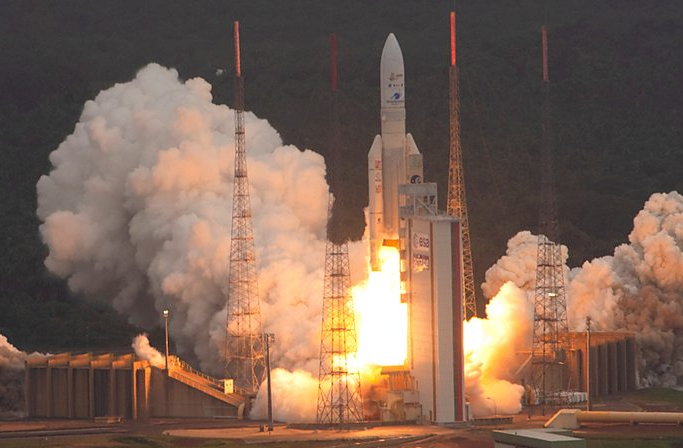LONDON: The $10bn James Webb telescope has left Earth on its mission to show the first stars to light up the Universe, BBC has reported.
The observatory was lifted skyward by an Ariane rocket from the Kourou spaceport in French Guiana, it said.
Its flight to orbit lasted just under half an hour, with a signal confirming a successful outcome picked up by a ground antenna at Malindi in Kenya.
Webb, named after one of the architects of the Apollo Moon landings, is the successor to the Hubble telescope.
Engineers working with the US, European and Canadian space agencies have built the new observatory to be 100 times more powerful, however.
“Lift off from a tropical rainforest to the edge of time itself, James Webb begins a voyage back to the birth of the Universe,” said American space agency (Nasa) TV commentator Rob Navias at the moment the rocket left the Earth.
Lift-off was eagerly awaited but accompanied also by a good deal of anxiety. Thousands of people worldwide have worked on the project over the past 30 years, and even though the Ariane is a very dependable vehicle – there are no guarantees when it comes to rockets.
(BBC)









Comment